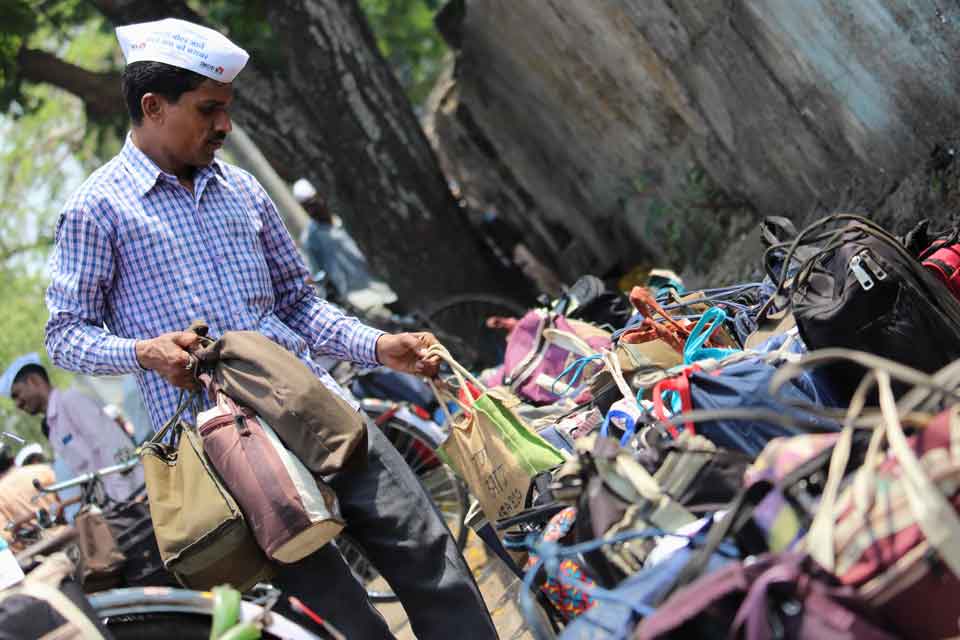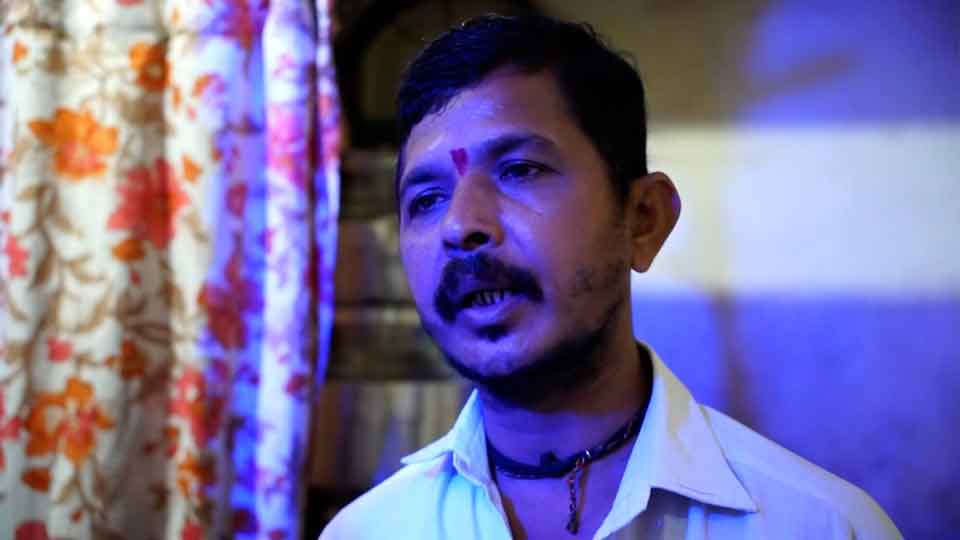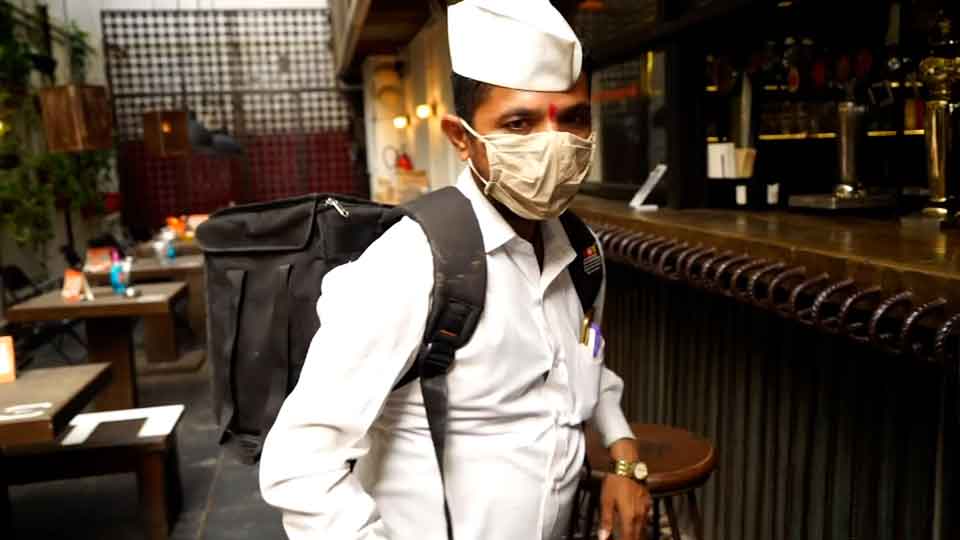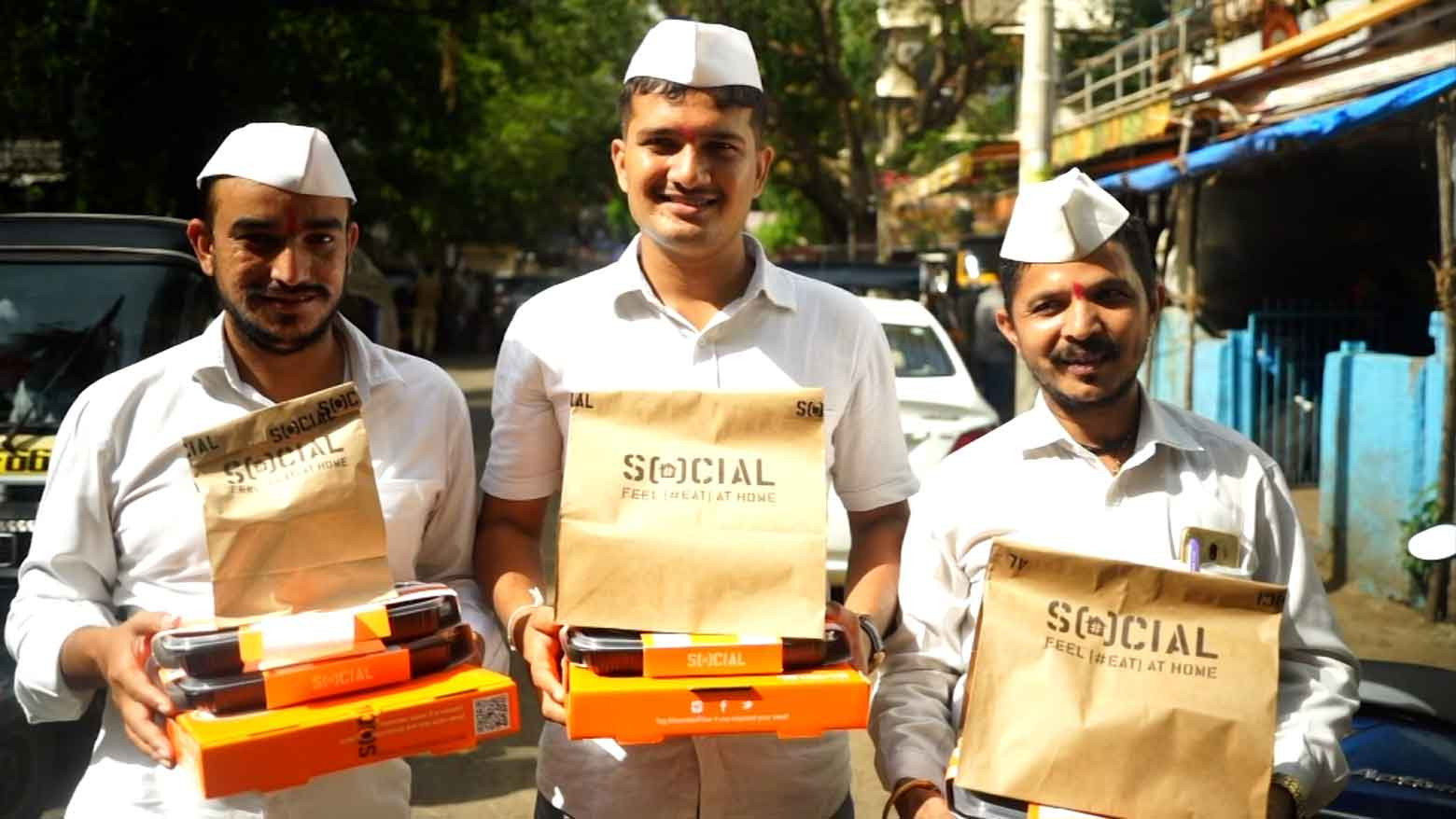Conspicuous in their white shirts and caps, Dabbawalas are a common sight during the day in Mumbai. They ride around on their bicycles, delivering home-cooked meals across the city. The service was started in the early 1890s and since then has grown into one of the most expansive delivery systems in the world. Before the pandemic, more than 5,000 Dabbawalas delivered up to 200,000 lunches to workplaces every day.
But, like most businesses, the lunch box delivery service has been devastated by the coronavirus. Orders have plunged over the past year-and-a-half, and an estimated 90 percent of Dabbawalas are now unemployed.

Pandemic challenges
Ramchandra Kedari, 38, worked as a Dabbawala for over 15 years, delivering more than 30 lunches every day. But he was forced to look for new work to support his wife and children after the pandemic ground the delivery business to a halt. He eventually picked up odd jobs that paid him about a third of what he used to make.
“After our service was stopped during the pandemic, I waited at home for five, six months,” Kedari said. “Then I realized things were not going back to normal so I started looking for work. First, I did housekeeping, then I was a security guard. It didn’t pay much, but I had to live with whatever salary I got.”
But thanks to a major restaurant chain, Kedari is now back doing what he knows and loves.

A new movement
Social Restaurant is a popular chain with restaurants throughout Mumbai. The company’s head of business, Mayank Bhatt, says the firm felt a sense of responsibility to help the Dabbawalas, who have long been the backbone of the city. The company recently started hiring Dabbawallas to handle deliveries.
“The Dabbawalla community is a 130 year-old institution, and they are doing this day in, day out,” Bhatt says. “We thought who better than them to collaborate, to push direct orders to our consumers. So, honestly, it was just a collaboration waiting to happen.

The company is making sure most of the profits go to the Dabbawalas themselves, using an app instead of organizing deliveries through third-party aggregators that would take a cut from every order. For some, including Kedari, the app was difficult to get used to at first, but they were eventually able to get the hang of it.
“It is a bit tough to check all the information on the app,” Kedari says. “Where does the order come from, where does it have to be delivered, who ordered. But those of us who do not understand can ask someone for help and they always figure it out.”
All in all, Kedari is happy to be back delivering food. He says he and the other Dabbawalas are grateful to the Social Restaurant for the opportunity.
“They have helped reduce the economic crisis of the Dabbawalas,” he says. “The job they have given us is providing us with hope.”
Adding value
But the company isn’t motivated solely by a sense of solidarity. Bhatt says the Dabbawalas add significant value to the business.
“They know the local areas very well,” he says, touting the speed of the Dabbawalas’ delivery. He adds that soon his company won’t be the only business using their services: “A lot of other restaurants will join us and hire the Dabbawalas in the future.”
Social Restaurant is planning to hire 50 additional Dabbawalas in the near future. Kedari is glad that he and his colleagues can be back in the city, doing what they know and love. And the feeling is shared by residents throughout Mumbai, for whom the sight of the bicycles and trademark white uniform of the Dabbawalas is a sign that things are finally starting to return to normal.

